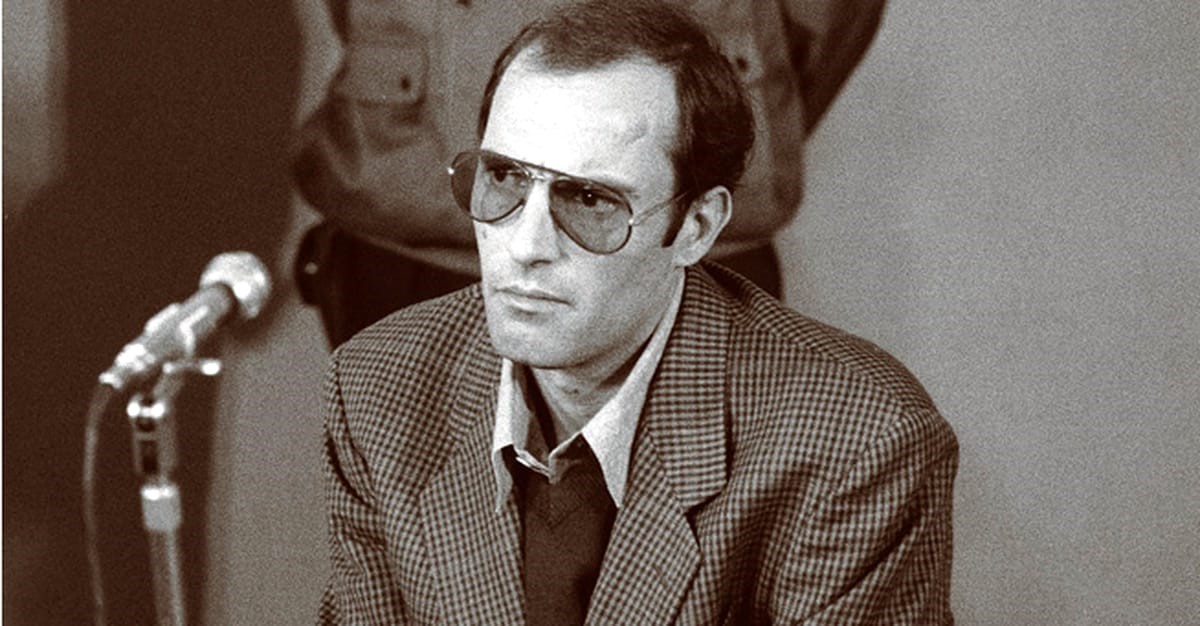
Nicu Ceaușescu was a Romanian politician, known primarily as the youngest son of the infamous dictator Nicolae Ceaușescu. Born in 1951, Nicu was groomed from an early age to follow in his father's footsteps, holding various significant positions within the Communist Party. Despite his privileged upbringing, Nicu's life was marred by controversy, scandal, and eventual downfall. Did you know that he was once considered a potential successor to his father? His story is a blend of power, privilege, and tragedy, reflecting the complexities of Romania's political landscape during the late 20th century. Let's dive into 40 intriguing facts about Nicu Ceaușescu, shedding light on his life, career, and the legacy he left behind.
Key Takeaways:
- Nicu Ceaușescu, son of Romanian dictator Nicolae Ceaușescu, led a controversial life filled with privilege, scandals, and a rapid political rise, ultimately ending in imprisonment and a quiet death at 45.
- Nicu's legacy remains a topic of debate, with his extravagant lifestyle, controversial decisions, and tumultuous personal life leaving a lasting impact on Romanian culture and society.
Early Life and Education
Nicu Ceaușescu, the youngest son of Romanian dictator Nicolae Ceaușescu, had a life filled with privilege and controversy. Let's dive into some intriguing facts about his early years and education.
- Born on September 1, 1951, Nicu was the third child of Nicolae and Elena Ceaușescu.
- He attended the prestigious "Gheorghe Lazăr" National College in Bucharest.
- Nicu studied physics at the University of Bucharest, where he earned a degree in 1978.
- Despite his academic background, Nicu's education was often overshadowed by his father's political influence.
Political Career
Nicu's political career was marked by rapid ascension and significant power, largely due to his father's position.
- In 1980, Nicu became the First Secretary of the Union of Communist Youth.
- He was appointed as the First Secretary of the Sibiu County Committee of the Romanian Communist Party in 1987.
- Nicu was often seen as a potential successor to his father, Nicolae Ceaușescu.
- His political career was marred by allegations of corruption and abuse of power.
Personal Life
Nicu's personal life was as tumultuous as his political career, filled with scandals and controversies.
- Nicu was known for his extravagant lifestyle, often throwing lavish parties.
- He had a reputation for being a playboy, with numerous relationships and affairs.
- Nicu was married to Poliana Cristescu, but the marriage ended in divorce.
- He was rumored to have had a relationship with Nadia Comăneci, the famous Romanian gymnast.
Downfall and Imprisonment
The fall of the Ceaușescu regime in 1989 marked a significant turning point in Nicu's life.
- Nicu was arrested on December 25, 1989, the same day his parents were executed.
- He was charged with corruption, embezzlement, and other crimes.
- Nicu was sentenced to 20 years in prison but served only five years before being released on medical grounds.
- His imprisonment marked the end of his political career and public life.
Later Years and Death
After his release from prison, Nicu lived a relatively quiet life until his death.
- Nicu moved to Bucharest and lived a low-profile life.
- He struggled with health issues, including cirrhosis of the liver.
- Nicu passed away on September 26, 1996, at the age of 45.
- His death marked the end of a controversial and tumultuous life.
Legacy and Public Perception
Nicu Ceaușescu's legacy remains a topic of debate in Romania, with opinions divided on his impact and influence.
- Some view Nicu as a victim of his father's regime, while others see him as a willing participant.
- His life is often cited as an example of the dangers of nepotism and unchecked power.
- Nicu's story has been the subject of numerous books, documentaries, and articles.
- His legacy continues to be a point of discussion in Romanian society.
Interesting Anecdotes
Beyond the well-known facts, Nicu's life was filled with interesting anecdotes that paint a fuller picture of his character.
- Nicu was known to have a passion for fast cars and often raced them on the streets of Bucharest.
- He was an avid fan of Western music, particularly rock and roll.
- Nicu once hosted a private concert for his friends featuring a famous Romanian rock band.
- Despite his privileged upbringing, Nicu was known to have a rebellious streak, often clashing with his parents.
Connections with Other Political Figures
Nicu's life intersected with many other notable political figures, both within Romania and internationally.
- He had a close relationship with Ion Iliescu, who later became the President of Romania.
- Nicu met several world leaders during his father's reign, including Kim Il-sung of North Korea.
- He was often seen at international events, representing Romania alongside his father.
- Nicu's connections extended to various influential figures in the Romanian Communist Party.
Cultural Impact
Nicu's life and actions had a significant impact on Romanian culture and society.
- His extravagant lifestyle became a symbol of the excesses of the Ceaușescu regime.
- Nicu's relationship with Nadia Comăneci added a layer of intrigue to his public persona.
- His downfall and imprisonment were seen as a turning point in Romanian history.
- Nicu's story has been adapted into various forms of media, including films and television series.
Controversial Decisions
Nicu's political career was marked by several controversial decisions that had lasting impacts.
- He was involved in the brutal suppression of protests in Sibiu during the 1989 revolution.
- Nicu's management of Sibiu was criticized for its harsh policies and corruption.
- He played a role in the economic policies that led to widespread poverty and hardship in Romania.
- Nicu's actions during his tenure continue to be a subject of debate and analysis among historians.
Final Glimpse at Nicu Ceaușescu
Nicu Ceaușescu's life was a mix of privilege and controversy. Born into Romania's ruling family, he enjoyed luxuries few could imagine. Yet, his actions and the political climate around him painted a complex picture. Nicu's involvement in politics, his notorious lifestyle, and eventual downfall highlight the turbulent times of Romania's history. His story serves as a reminder of how power can shape, and sometimes distort, one's path. From his rise to prominence to his eventual imprisonment, Nicu's journey reflects the broader narrative of a nation in flux. Understanding his life offers insights into the dynamics of power, privilege, and the consequences that follow. As we reflect on these facts, it's clear that Nicu Ceaușescu remains a significant, albeit controversial, figure in Romanian history. His legacy continues to spark debate and intrigue, making him a compelling subject for historical exploration.
Frequently Asked Questions
Was this page helpful?
Our commitment to delivering trustworthy and engaging content is at the heart of what we do. Each fact on our site is contributed by real users like you, bringing a wealth of diverse insights and information. To ensure the highest standards of accuracy and reliability, our dedicated editors meticulously review each submission. This process guarantees that the facts we share are not only fascinating but also credible. Trust in our commitment to quality and authenticity as you explore and learn with us.


